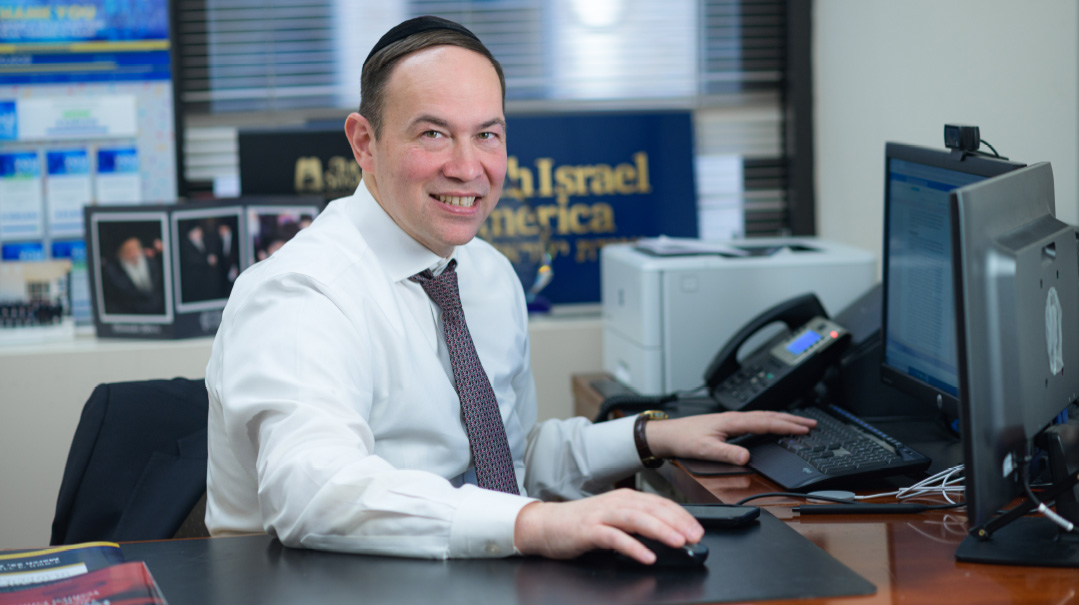Spreading the Wealth
| November 29, 2022As he readies for this year’s 100th Agudah Convention, Rabbi Naftali Miller shares his unlikely story

Photos: Naftoli Goldgrab
The radiant smile, the sheer positivity, infectious zeal and genuine love for each and every member of Klal Yisrael, has propelled Rabbi Naftali Miller into a very public role as chesed director, communal askan, and Agudah’s chief development officer. As he readies for this year’s 100th Agudah Convention, Rabbi Miller shares his unlikely story – of a struggling child from a broken home catapulted to success by a mother’s faith
When Russian forces invaded Ukraine before Purim this past year, the world witnessed a humanitarian crisis of epic proportions unfold before their eyes. The Jewish community of Ukraine in particular had to contend with an existential threat, facing not only physical danger but spiritual upheaval as well.
A desperate call went out to world Jewry, and a flurry of fundraising platforms were set up to assist in every way possible. With time, Agudath Israel’s Vaad Hatzalah proved to be a long-haul campaign, distributing tens of millions of dollars and providing for crucial rescue and resettlement efforts.
And they weren’t the only ones. Simultaneously, Chabad activists were working around the clock to ensure the safety of those fleeing from, and those still in, Ukraine. Rabbi Mendy Kotlarsky, one of the prime askanim involved in the Chabad effort, was approached by a friend who suggested that he meet with the Agudah — perhaps there was some overlap between the organizations, and perhaps they could streamline results by coordinating efforts. At first, Chabad leadership was skeptical — historically, each organization had played its own role with little intersection, but Reb Mendy agreed to a meeting of the two delegations. Heading Agudah’s Vaad Hatzalah was Rabbi Naftali Miller.
Reb Mendy admits to having harbored doubtful misgivings before going in. Yet his personal reservations melted as soon as the meeting with Rabbi Miller adjourned. The smile. The simchas hachayim. The raw, authentic, and unadulterated enthusiasm and determination in the ability to help another Yid left Reb Mendy taken with the Agudah leader.
Reb Mendy isn’t the only one. The radiant, thousand-watt smile that is perpetually worn by Rabbi Naftali Miller, his sheer positivity, the infectious zeal and genuine love for each and every member of Klal Yisrael, has catapulted him into a very public facing role, one that includes organizing and operating some of the most colossal chesed projects today.
As he readied for this year’s 100th Agudah Convention, Rabbi Miller shared with Mishpachahis community-conscious journey — from director of development for Yeshiva Derech Chaim and cofounder and director of the Chasdei Lev organization for rebbi and teacher support, to becoming chief development officer of Agudath Israel of America as well as of its Vaad Hatzalah. It’s a role he’s supremely grateful for, but also one that he never sought — and one that, given his background, not he nor others would ever have expected.
Oops! We could not locate your form.







